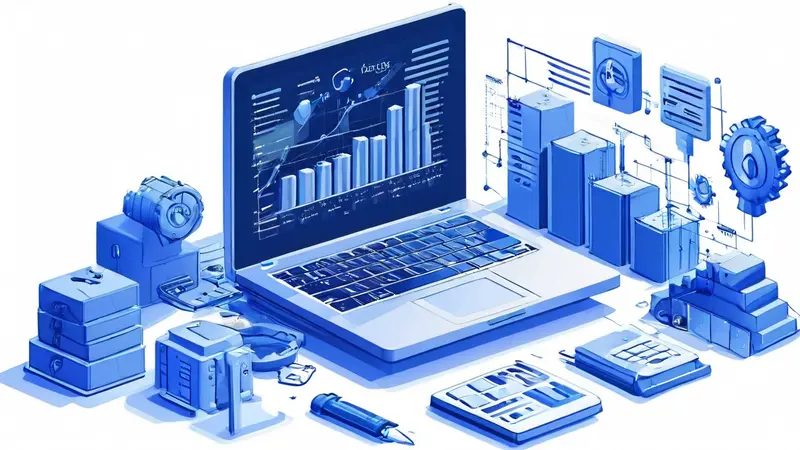
物联网工程主要学习的是传感器技术、网络通信技术、物联网架构与标准、数据处理与分析、物联网安全以及应用开发等相关领域。传感器技术是物联网信息采集的基础,涉及不同类型的传感器原理与应用。网络通信技术则是确保设备间互联互通的关键,覆盖了从局域网络到广域网络的通信协议。 物联网架构与标准方面,学习者需要了解物联网的各种架构模式、相关国际和国内标准。在数据处理与分析部分,重点关注如何处理和分析物联网收集到的大量数据。安全性方面,着重学习保护物联网设备和数据的策略和技术。最后,应用开发则集中于如何将物联网技术融入到各行各业的具体应用之中。在传感器技术方面,学生将深入学习不同传感器的工作原理,如温度传感器、湿度传感器、光传感器等,并了解如何将传感器集成到物联网系统中以实现环境监测、健康跟踪等功能。
一、传感器技术
传感器技术是物联网工程中不可或缺的一环,它负责将物理量转换成可以被计算机系统处理的电信号。学习传感器技术涉及到了解各种传感器的分类、工作原理、选择标准和使用场景。例如,学习温度传感器的原理,包括热电偶和热敏电阻,以及如何在不同环境下准确测量温度。
传感器的应用十分广泛,因此语境中还包括了对传感器性能的评估与优化。学生必须掌握如何根据应用需求选择合适的传感器,并且要懂得如何对传感系统进行校准和维护。
二、网络通信技术
物联网工程专业学习重视网络通信技术的掌握,因为它直接影响到物联网设备的互联性能。网络通信课程涵盖有线和无线通信技术,如Wi-Fi、蓝牙、Zigbee、LTE、5G等。学生还会学习网络协议栈的构建,例如TCP/IP协议,以及如何为物联网设备配置和管理网络连接。
此外,网络安全是网络通信技术中的重要组成部分,包括加密技术、访问控制和网络防御策略。学生应该了解在物联网环境下如何保护数据通信免受攻击。
三、物联网架构与标准
物联网架构与标准课程主要讲授不同层次的物联网架构模型,以及这些模型如何支持设备管理、数据交换和服务部署。学习者需要理解物联网协议栈,包括但不限于MQTT、CoAP和HTTP。这些标准确保了物联网设备能够以安全、可靠的方式联网。
此外,与传统IT环境涉及安全标准和协议不同,物联网设备的资源限制与多样性要求学生了解如何在不牺牲功能性的情况下实现标准的应用和遵循。
四、数据处理与分析
物联网工程后续课程会教授数据处理与分析,这包括从物联网设备采集的海量数据中提取有用信息的方法。这些数据处理技术涉及到数据预处理、存储和分析,包括使用机器学习和深度学习模型进行模式识别。
学习如何利用大数据分析工具对数据进行可视化和解释同样重要。这允许学生能够洞悉数据背后的业务洞察,为决策支持提供依据。
五、物联网安全
物联网安全是物联网工程的关键组成部分,关注点包括设备安全、数据安全和网络安全。这方面的课程包含了对各种潜在威胁的分析,以及如何设计能够防御这些威胁的物联网系统。学生将学习到物联网安全的最佳实践,例如如何为物联网设备实施固件和软件升级,如何管理身份和访问控制,如何监控网络活动来检测异常行为等。
安全课程同样涉及到法律和规范,理解这些法规如何影响物联网产品的设计和部署对于即将进入这个行业的学生来说极为重要。
六、应用开发
在物联网应用开发课程中,学生将学习如何将已经掌握的传感器知识、通信技术和数据处理能力综合应用到具体的物联网解决方案中。应用开发的核心在于构建能够解决实际问题的系统,涉及跨学科知识的整合和软件编程能力。
课程通常会包括一些项目工作,学生可以在指导老师的帮助下,开发例如智能家居、智慧农业或者健康监测系统等具体应用。这种实践能力的培养非常重要,因为它可以帮助学生将课堂上学到的理论知识转化为实际应用。
相关问答FAQs:
What are the mAIn topics covered in the study of IoT engineering?
- The main topics covered in the study of IoT engineering include:
- Sensor technology: Understanding the various types of sensors used in IoT systems and their applications.
- Communication protocols: Learning about different communication protocols like MQTT, CoAP, and RESTful APIs used in IoT devices for data exchange.
- Data analytics: Analyzing and interpreting the vast amount of data generated by IoT devices to gain valuable insights.
- Cloud computing: Understanding how cloud platforms can be utilized to store and process data from IoT devices.
- Security and privacy: Exploring the challenges related to securing IoT systems and protecting user data.
- Hardware and software integration: Learning how to design and implement IoT systems by integrating hardware components and developing software applications.
How can studying IoT engineering benefit my career?
- Studying IoT engineering can provide numerous benefits to your career, such as:
- Increased job opportunities: As the demand for IoT professionals continues to rise, studying IoT engineering can open up various career opportunities in industries like healthcare, manufacturing, transportation, and smart cities.
- High earning potential: IoT professionals are in high demand, and their specialized skills can command competitive salaries.
- Innovation and creativity: The field of IoT is constantly evolving, offering ample opportunities to apply innovative and creative solutions to real-world problems.
- Interdisciplinary skills: IoT engineering combines knowledge from various domains, including electronics, computer science, data analytics, and communications, providing you with a diverse skillset.
- Contribution to a sustainable future: IoT technologies have the potential to revolutionize industries and contribute to building smarter and more sustainable systems.
What are the future prospects and trends in the field of IoT engineering?
- The field of IoT engineering is poised for significant growth and offers several exciting future prospects and trends, such as:
- Expansion of IoT applications: With advancements in technology, IoT is expected to rapidly expand into various sectors, including agriculture, energy management, and smart homes.
- Edge computing: The rise of edge computing, where data is processed closer to the IoT devices instead of relying on cloud platforms, is expected to enhance real-time data processing and reduce latency.
- Artificial Intelligence (AI) integration: The integration of AI with IoT systems will enable autonomous decision-making and predictive analytics, leading to more efficient and intelligent systems.
- Enhanced security measures: As IoT devices become more prevalent, there will be a greater focus on improving security measures to protect against cyber threats and ensure data privacy.
- Standardization and interoperability: The development of common industry standards and protocols will facilitate interoperability between different IoT devices and platforms, promoting a connected ecosystem.





























